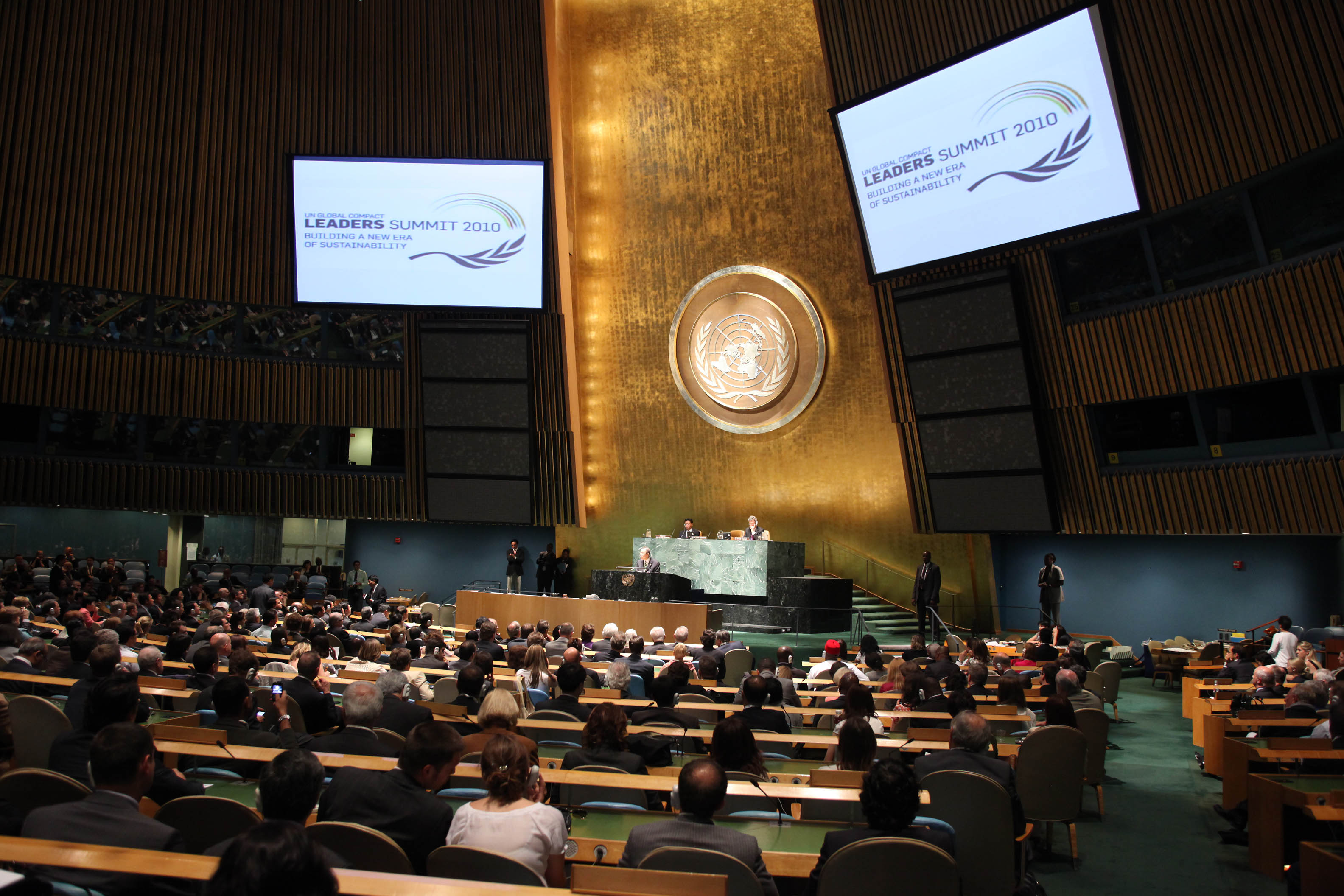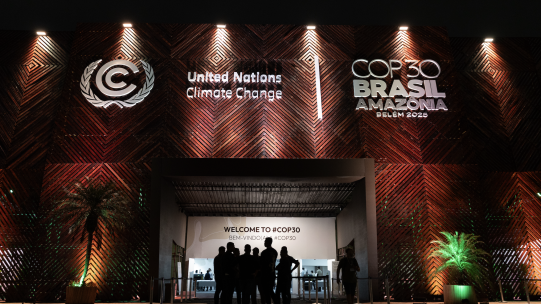Ten Principles, 25 Years: Uniting business for a better world
Read more

The United Nations Global Compact is a principles-driven organization. Companies that join the UN Global Compact commit to responsible business practices across ten core principles. These shared values unite the private sector, driving progress across sectors, regions and governments.
Together, through shared guiding principles, collective change is possible.
Over the past 25 years, companies have advanced corporate sustainability globally in collaboration with the UN Global Compact. Major achievements span the areas of human rights, labour, environment and anti-corruption.
These efforts align businesses with global frameworks, helping to build more resilient and responsible companies and progressing toward realizing the Sustainable Development Goals (SDGs).
The Ten Principles are derived from the Universal Declaration of Human Rights, the International Labour Organization’s Declaration on Fundamental Principles and Rights at Work, the Rio Declaration on Environment and Development and the United Nations Convention Against Corruption.

Grounded in key frameworks, these principles provide a universal and common language for corporate responsibility, rooted in the values of human rights, labour rights, environmental protection and anti-corruption.
What are the Ten Principles, and why do they matter now more than ever?
Human Rights
Principle 1: Businesses should support and respect the protection of internationally proclaimed human rights.
Principle 2: Make sure that they are not complicit in human rights abuses.
Respect for human rights is essential to building inclusive societies, resilient economies and sustainable businesses.
When companies embed human rights into their operations and supply chains, they strengthen trust, attract talent and foster long-term stability.
Human rights due diligence is the global standard for responsible business conduct—helping companies identify, prevent and remedy harm while enhancing transparency and accountability.
The human rights principles of the UN Global Compact are aligned with the Universal Declaration of Human Rights and the UN General Assembly Declaration on the Right to Development, which links human rights to economic, social, and political progress.
The Global Compact helps companies translate human rights commitments into action. Through platforms like the Business and Human Rights Accelerator, Business and Human Rights Navigator, Think Lab on Human Rights in Supply Chains and relevant Academy courses, companies can access the required tools to assess risk, conduct human rights due diligence and embed respect for human rights throughout their operations.
Aligning with international human rights standards is a legal and reputational safeguard and a strategic advantage that drives business innovation and inclusive growth. Businesses have the power to lead positive change and help build a more just and equitable world for all.
Labour
Principle 3: Businesses should uphold the freedom of association and the effective recognition of the right to collective bargaining.
Principle 4: The elimination of all forms of forced and compulsory labour.
Principle 5: The effective abolition of child labour.
Principle 6: The elimination of discrimination in respect of employment and occupation.
Respecting labour rights and advancing decent work means treating workers with dignity and fairness. This includes safe working conditions, living wages, freedom from discrimination and access to representation. Decent working conditions are essential to building inclusive economies and sustainable supply chains.
Respect for workers’ rights and compliance with labour standards are pathways to equality, particularly for marginalized groups who often face systemic barriers in the workplace.
The UN Global Compact is advancing decent work and strengthening business respect for labour standards by supporting companies to improve working conditions for all workers across their operations.
From setting bold targets on living wages and gender equality through Forward Faster, to promoting safe and healthy workplaces and tackling child labour, the initiative connects businesses with the tools, partnerships, and accountability mechanisms they need to uphold workers’ rights worldwide.
When companies promote and provide a living wage as an essential aspect of decent work, they help ensure workers, families and communities can live in dignity.
Environment
Principle 7: Businesses should support a precautionary approach to environmental challenges.
Principle 8: Undertake initiatives to promote greater environmental responsibility.
Principle 9: Encourage the development and diffusion of environmentally friendly technologies.
The triple planetary crisis – climate change, biodiversity loss and pollution – is one of the most significant threats of the 21st century.
To avert the worst impacts of climate change, we must limit global warming to 1.5°C. However, as the latest Intergovernmental Panel on Climate Change (IPCC) reports show, despite current nationally determined contributions (NDCs) and commitments, we are seeing increases that may risk a catastrophic 2.6°C rise by the end of the century. Concurrently, we are experiencing a dangerous decline in biodiversity.
Participation from the private sector will be crucial to achieving the 1.5°C goal and global net-zero carbon emissions by 2050.
Businesses must leverage their resources and networks to send strong market signals, scale innovative solutions, and present credible, science-based decarbonization plans. Additionally, businesses can take action on biodiversity, all while unlocking more climate finance and advocating for a green and just recovery. By engaging with the UN Global Compact, companies can accelerate this ambitious transition.
Companies can align with the Climate Action Targets on Net-Zero and Just Transition while future-proofing their business. The UN Global Compact provides programmes and resources with practical guidance to help companies set and act on targets, while conducting business in a more responsible and nature-positive way.

The world is shifting, and those who act now will be better prepared for the future. Considering climate isn’t just the right thing to do—it’s the smart thing.
Anti-Corruption
Principle 10: Businesses should work against corruption in all its forms, including extortion and bribery.
Corruption corrodes economies, increases inequality and threatens the future of our global community. It’s now more important than ever to focus on partnerships and joint efforts, putting effective tools into practice to counter this issue while enhancing integrity, transparency and accountability.
Corruption has a pervasive effect that impedes the achievement of the 2030 Agenda for Sustainable Development. It weakens democracy and the rule of law and hinders the economy while fueling insecurity and neglecting human rights. It distorts markets and creates unfair competition, resulting in increased costs, missed business opportunities and legal and reputational risks.
Neither Governments nor the private sector can tackle corruption alone. By uniting the private sector, Governments and civil society can collectively tackle anti-corruption for a better world.
In today’s interconnected world, good governance means more than just maximizing profits and complying with the law. The Transformational Governance framework developed by the UN Global Compact calls on companies to embed environmental, social, and governance (ESG) priorities into every aspect of their business.
Recognizing that risks like climate change, inequality and corruption impact long-term stability and profitability. If companies can proactively manage these issues as core business priorities, they are not only doing the right thing but making a smart business decision.
Ultimately, Transformational Governance provides a framework for companies to operate responsibly, contribute to systemic change and build long-term resilience. It strengthens internal governance and reinforces the company’s role in fostering sustainable, inclusive and transparent business ecosystems.

By aligning legal, ethical, and sustainability expectations, companies can build trust, attract talent, stay ahead of regulations, and drive lasting, positive change. After 25 years of progress, one thing is clear: transparency, accountability and responsible leadership are essential for business resilience and a thriving global economy.
Ten Principles, 25 years later
For 25 years, the UN Global Compact has been the world’s largest corporate sustainability initiative, uniting thousands of companies committed to doing business responsibly and driving progress for people and the planet. At the core, the Ten Principles are the foundation of this change.
The Ten Principles are more than aspirational; they are real, tangible steps to enact better, more sustainable business. While the past 25 years have seen massive change in technology, communication and global interactions, the Ten Principles offer a shared baseline for responsible business, especially in a time when global trust is fragile and the need for sustainability is urgent.
As we look ahead, the Principles remain a core foundation of the UN Global Compact and the starting point for aligning business with the SDGs. Whether a multinational or a small enterprise, the message is clear and remains the same:
Business as usual is no longer good enough, but together, businesses united by principles can be a force for good.



